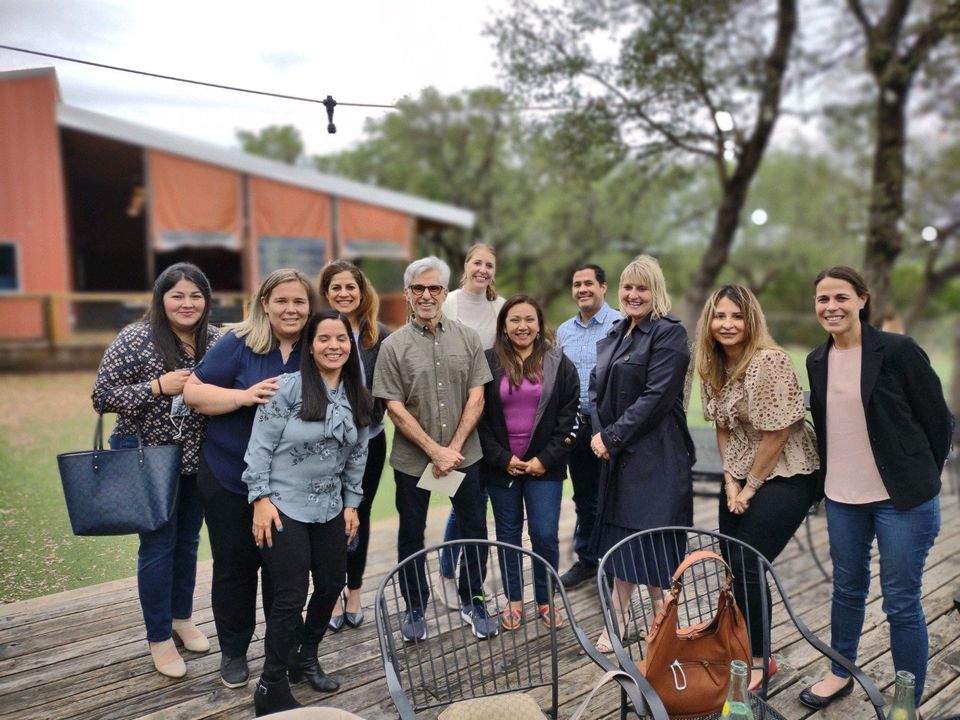Saying Goodbye: Judge Garcia retires after more than 30 years of service
Spotlight: Judge Richard Garcia

The Honorable Judge Richard Garcia, associate judge for the 225th District Court here in Bexar County, ended his 33-year legal career at the Bexar County Children’s Court. He officially retired on April 30, 2021.
Judge Garcia received his Doctor of Juris from St. Mary’s University in 1979. After practicing law in the public sector for several years, he returned to public service as the Assistant District Attorney for Child Protective Services handling Child Abuse and Neglect cases in July 1988.
In February 1990, The Honorable Judge Richard Garcia was unanimously approved by the Bexar County District Judges and appointed as an Associate Judge, to handle Family law matters. In 2005, Judge Garcia was assigned to serve in the Bexar County Children’s Court. A position he considers both a calling and a privilege as he strived to bring justice to the most innocent of victims – the children.
His impact on the child welfare system will not soon be forgotten. Everyone that has had the privilege to work in his courtroom will miss his dedication, compassion, incredible humor and contagious smile. During his tenure he has sworn in hundreds of CASA Volunteers. His wisdom and words always seemed to inspire Volunteers to best advocate for the children. “His passion and calling shined through every word he spoke. There wasn’t one swearing in that he didn’t almost make me cry.” said Leticia Hernandez, VP of Recruitment and Training.
“Judge Garcia has always had a tremendous amount of respect for CASA, CASA recommendations and our overall mission.” said Dennis Ramsey, tenured CASA supervisor, “Even when our recommendations didn’t align, he was respectful and professional.” To Judge Garcia, every case that went through his court, was treated as if these were his own children, and that is exactly how he referred to them, “his kids”.
"He valued the information that CASA Volunteers were able to bring forth on their CASA court reports and he was always looking to see that his kids were thriving" recalls Allison Martinez, VP of Programs. Judge Garcia was constantly pushing everyone around him to seek the best for his kids. He was constantly asking the tough questions and ensuring that he had the most up to date information on his cases. He truly valued the information and insight that our Volunteers would bring to him through their court reports.
Today we pay tribute to his dedication, commitment, and professionalism. "We can only hope and pray that the next Judge to preside in Children's Court will show the empathy and love for the foster children we serve that was embodied in every decision Judge Garcia made "states Angela White, CASA CEO & President. The impacts he has made during his tenure are countless and his legacy will continue to influence everyone that works in the child welfare system.

In November 2025, Child Protective Services received a referral involving two sisters, ages 13 and 14, who were found caring for themselves. Following the death of their father, the girls experienced ongoing abuse and neglect. They were living in unsafe and unsanitary conditions, frequently left alone without adequate food, functioning plumbing, or consistent supervision, and were exposed to strangers regularly coming in and out of the home. Shortly after removal, Tameka Woolfolk was appointed as the Advocate on the case. From the very beginning, Tameka became one of the few consistent and reliable adults in the girls’ lives. The children experienced and continue to endure placement changes. These frequent transitions created ongoing instability and further complicated the girls’ ability to heal and adjust. Throughout each move, Tameka remained steadily involved, working diligently to ensure that the children’s services and support continued without interruption. She supports the girls not only emotionally, but physically as well helping pack their belongings at each move, accompanying them during school tours, and remaining readily available whenever they need support. Neither child was initially aware that they had the right to speak directly with the judge. Tameka recognized the importance of their voices being heard and with the support of the Ad Litem, helped to facilitate their presence at court, requesting that the judge meet with the girls in a breakout room, so they could personally express their wishes, all with the department, CASA and the Ad Litem by their side. In addition, this case was referred to Collaborative Family Engagement (CFE). During CASA’s ongoing exploration for family connections alongside the Department, Tameka discovered the children’s father’s obituary. Through this discovery, it was learned that the girls’ father had served in the United States Army as a combat medic during the Vietnam War and later worked for 30 years in civil service. Tameka took the initiative to request documentation, including VA records and a death certificate, to determine whether the children might be eligible for survivor benefits. The obituary also revealed that the girls are two of fourteen siblings. While many of the siblings were unable to provide support, CASA and the Department were able to establish contact with one brother. Through Tameka’s strong collaborative relationship with the Department and the Attorney Ad Litem, a thoughtful and appropriate plan was developed to allow the girls to begin visits with their brother, his wife, and their cousins. Although this story is still unfolding, both girls know one unwavering belief, that no matter what comes next, they know that Miss Tameka will continue to stand beside them every step of the way.







